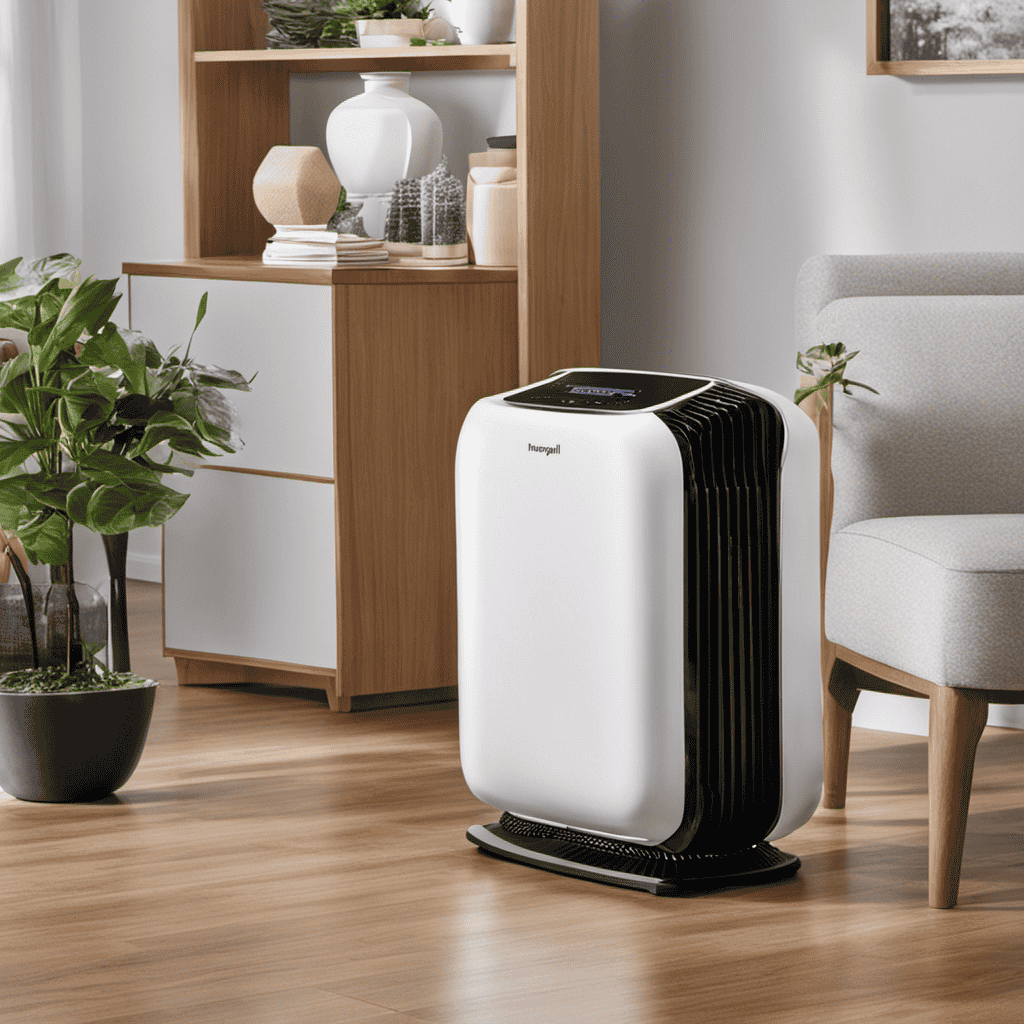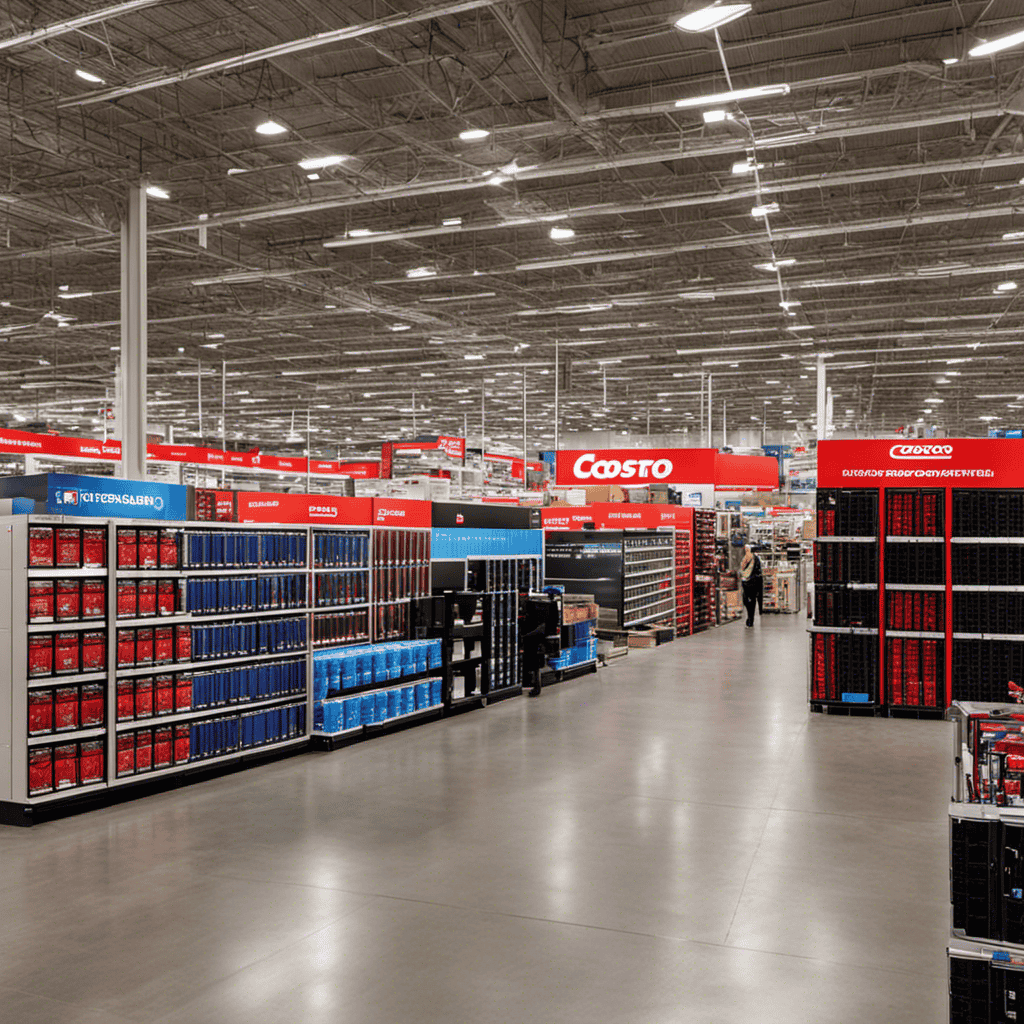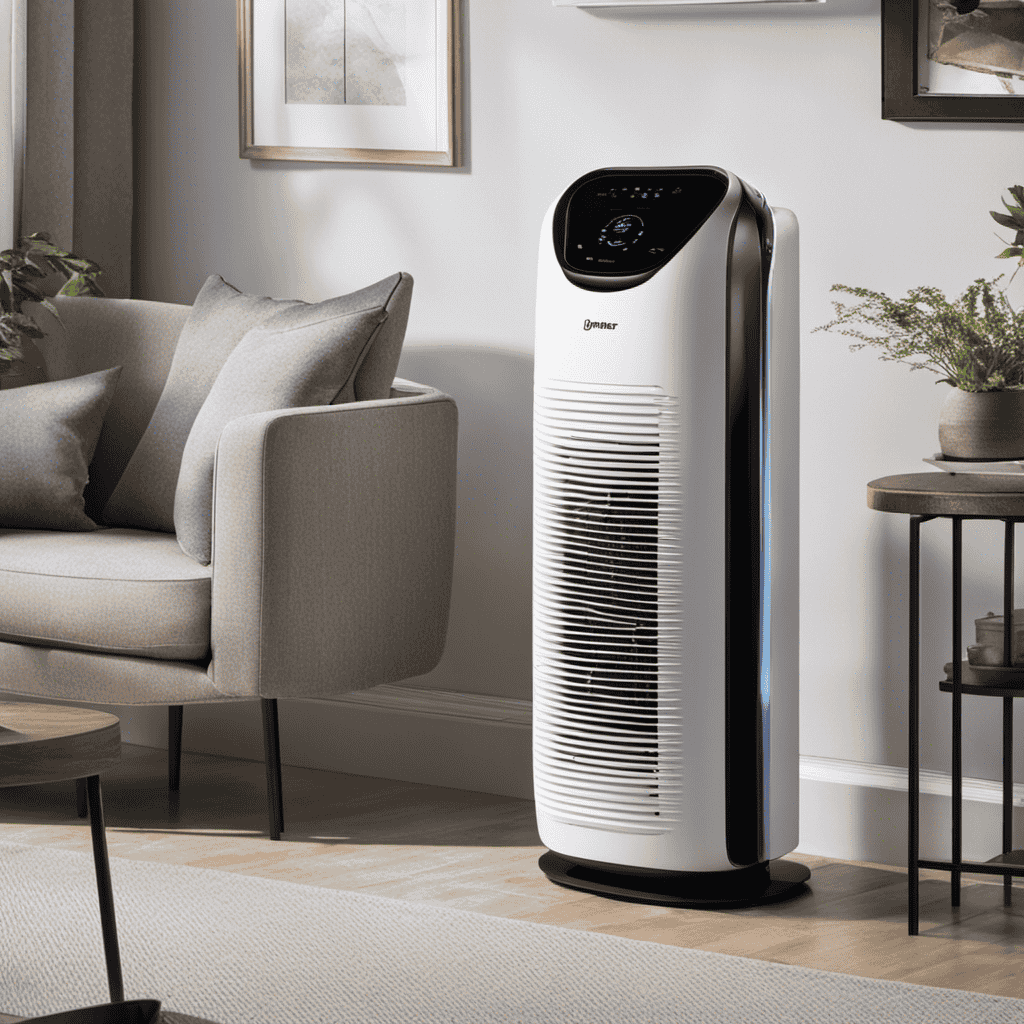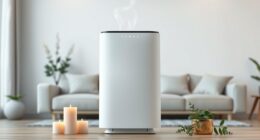If your filter smells like wet dog after heavy use, it’s likely due to moisture buildup that promotes mold, bacteria, and airborne allergens thriving on the filter. When dirt and dust accumulate, moisture gets trapped, creating an environment for these microorganisms to grow and produce a damp, musty odor. Regularly replacing or cleaning your filter can prevent this smell, and understanding the causes can help you keep your indoor air fresh—more details await if you continue exploring.
Key Takeaways
- Moisture buildup in filters creates ideal conditions for mold and bacteria that produce a wet dog-like odor.
- Heavy use leads to dirt and airborne allergens trapping moisture, causing persistent musty smells.
- Neglecting regular filter replacement allows microbial growth, intensifying damp, foul odors over time.
- Trapped moisture and microorganisms produce characteristic damp, wet dog scent in filters.
- Poor maintenance and infrequent changes promote mold, bacteria, and allergen buildup, resulting in the odor.
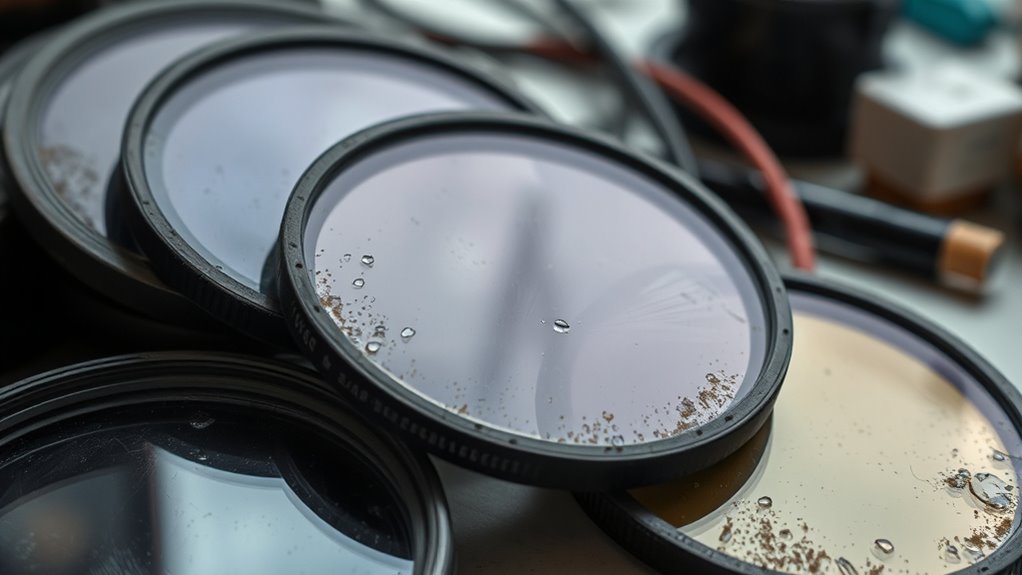
Have you ever noticed your air filters emitting a musty, wet dog smell? It’s an unsettling experience that can make you question the air quality in your home. This odor often signals more than just a dirty filter; it hints at underlying issues related to airborne allergens and the need for proper filter maintenance. When filters become heavily used, they tend to trap dust, dirt, and moisture, creating an environment where bacteria and mold can thrive. These microorganisms are often responsible for that damp, foul smell you detect. Over time, as the filter collects more airborne allergens—like pollen, pet dander, and mold spores—the smell can intensify, making your indoor air seem even more contaminated.
One of the main reasons your filter might smell like a wet dog after heavy use is because it’s become saturated with moisture. This often happens in humid environments or during seasons of increased indoor activity, such as cold weather when windows stay shut. When moisture gets trapped in the filter, it creates a breeding ground for mold and bacteria. These microorganisms produce that characteristic damp, musty odor that resembles a wet dog. Additionally, as the filter gets clogged with airborne allergens, it becomes less efficient at capturing new particles, allowing these allergens to circulate freely in your home’s air. This can worsen allergy symptoms and contribute to that unpleasant smell.
Moisture saturation in filters fosters mold, bacteria, and allergens, causing a damp, musty odor reminiscent of a wet dog.
Maintaining your filters regularly is essential to prevent this issue. Filter maintenance involves replacing or cleaning your filters according to the manufacturer’s guidelines, typically every 1 to 3 months. Neglecting this can lead to a buildup of dirt, dust, and moisture, which not only causes odor but also reduces the efficiency of your HVAC system. When filters are overdue for replacement, they’re less effective at trapping airborne allergens, allowing these tiny particles to become airborne again. This cycle of dirty filters and airborne allergens can make your indoor environment feel stale, stuffy, and unclean.
To avoid this problem, it’s essential to stay on top of filter maintenance, especially if you notice any musty smells. Regularly inspecting your filters for signs of dirt and moisture can save you from dealing with persistent odors and compromised indoor air quality. Using high-quality filters designed to handle humidity and allergens can also help reduce the chances of mold growth and odor development. Remember, a clean, well-maintained filter not only improves air quality but also protects your HVAC system, ensuring it runs smoothly and efficiently. Proper filter selection and maintenance are key to preventing mold and bacteria buildup. So, check your filters often, replace them as needed, and keep airborne allergens at bay to breathe easier and avoid that dreaded wet dog smell.
Frequently Asked Questions
Can Replacing the Filter Eliminate the Wet Dog Smell Completely?
Replacing the filter can substantially reduce or eliminate the wet dog smell, but it depends on proper filter maintenance and odor prevention practices. Regularly changing filters prevents buildup of bacteria and mold that cause odors. Make certain you clean surrounding areas and follow manufacturer recommendations. While a new filter helps, maintaining a routine and addressing moisture issues also play vital roles in keeping your device odor-free over time.
How Often Should I Replace My Filter to Prevent Odors?
Did you know that replacing filters every 30 to 60 days can considerably improve air quality? To prevent odors, you should swap out your filter regularly, especially if you notice a wet dog smell. This routine maintenance helps eliminate trapped odors and keeps your indoor air fresh. Consistent filter changes are essential for odor prevention and ensuring your air remains clean and healthy.
Are Certain Filter Materials More Prone to Developing Odors?
Certain filter materials are more prone to developing odors because of their odor susceptibility. For example, activated carbon filters tend to trap smells better but can also retain odors if not replaced regularly. Fiberglass or pleated filters may also trap particles that contribute to odors. You should choose filter materials based on your home’s needs and replace them frequently to minimize odor buildup, especially with materials prone to odor susceptibility.
Does Humidity Level Affect the Formation of the Smell?
Humidity impact plays a significant role in the smell you notice on filters. When humidity levels are high, moisture influence encourages mold and bacteria growth, which can cause that wet dog odor. You’ll often find that in damp environments, the moisture provides a breeding ground for these organisms. To reduce this smell, try lowering humidity in your space or ensuring your filters stay dry and well-maintained.
Can Cleaning the Filter Reduce or Remove the Odor Effectively?
Cleaning your filter can substantially reduce or remove the odor, enhancing filter efficiency and improving air quality. When you wash or replace it regularly, you remove trapped airborne allergens and bacteria that cause the wet dog smell. This helps prevent the buildup of odors and keeps your filter functioning properly. Make sure to follow manufacturer instructions for cleaning to get the best results and maintain a fresh, odor-free environment.
Conclusion
Just like a forgotten pet left in the rain, your filter’s ‘wet dog’ smell warns you it’s time for a change. Think of it as the ghost of freshness past, lingering in the shadows of heavy use. Don’t let your air filter become a haunted house; replace or clean it regularly. When you do, you’ll breathe easier, as if the storm has finally passed, leaving only pure, clean air behind.



